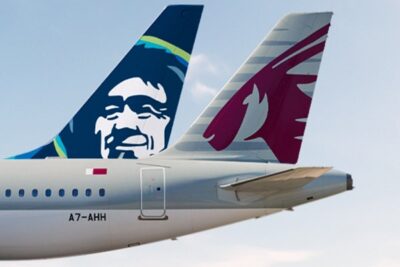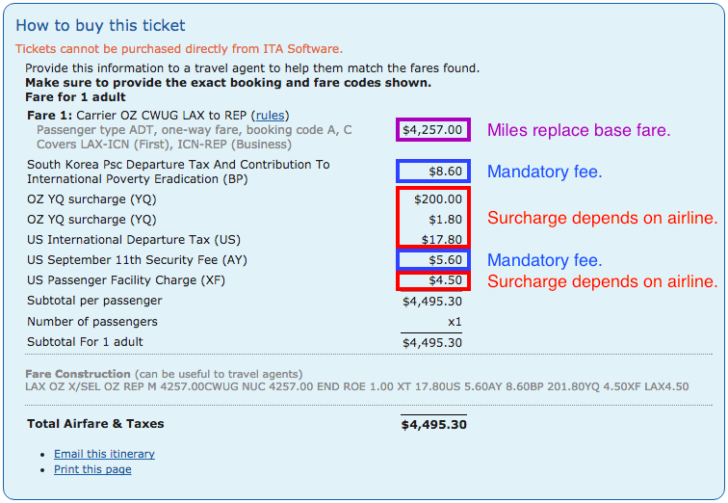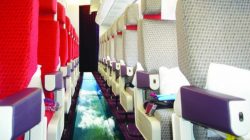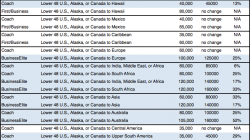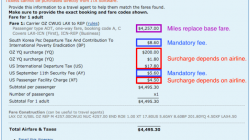There’s no such thing as free award travel. You will always have to pay some fees and taxes when you book an award ticket, and depending on the carrier and your itinerary, additional surcharges may apply. The question is how much will these be? Three factors will determine what you have to pay, and you might decide to redeem miles with a different program to avoid extra costs.
Reservation Fees
Reservation fees are set by the loyalty program — in this case Delta SkyMiles. Some of these fees are waived for members with elite status, while others aren’t. There may also be extenuating circumstances that enable you to get fees waived, so it’s worth asking if you think you have a compelling argument. But don’t try calling in to get an award re-priced if you think the website is adding it up wrong. Delta no longer publishes an official award chart, and agents are trained to follow the computer’s pricing.
No telephone reservations fee — If you need to call to book your award, Delta has waived those fees. Although Delta does a good job displaying award space, calling in is still required for a few partners.
No close-in ticketing fee — Delta does not charge a close-in ticketing fee. However, all award travel must be booked (or cancelled) at least 72 hours before departure.
$150 change/cancellation fee — Delta has a single fee of $150 per ticket for any change involving a different cabin, carrier, date, time, etc. The same fee applies to cancellations. This fee is waived for Diamond and Platinum Medallion members. (Remember that all changes and cancellations must occur at least 72 hours before departure.)
Taxes
There is little you can do to avoid government taxes. All award travel includes taxes, and they are determined by local governments — not the airlines. Generally speaking, you will pay more in taxes when you make additional connections because some taxes are applied on a per-segment basis to cover airport operations and security.
Some taxes can be avoided by making adjustments to your itinerary. For example, flights from Canada (not to) have about $50 in taxes that don’t exist on the U.S. side of the border. Driving from Vancouver to Bellingham could be cost-effective for a large group. Other taxes may penalize specific groups, such as the Air Passenger Duty (APD) that applies to travelers departing London. You can avoid the APD if you begin your travel outside of London and merely connect on your way to someplace else. If you must fly from London, keep in mind the APD increases for travelers in premium cabins vs. economy class.
Delta is the only airline I know of that provides a comprehensive list of government taxes and fees on its website for each destination it serves. (There may be other fees that apply to award travel operated by partner airlines.) However, I show in an example below how to find the exact fees that are relevant to your itinerary.
Fortunately, taxes are pretty consistent no matter which airline you fly, so you don’t need to worry about making a strategic choice to redeem miles from one program or another.
Carrier-Imposed Surcharges
Sometimes known as “fuel surcharges” — although they no longer have much to do with the price of fuel — carrier-imposed surcharges are collected by Delta for travel on some partners but not others.
The itinerary matters, too. Delta doesn’t normally collect surcharges for travel on its own flights or those operated by Air France, Alitalia, KLM, and Virgin Atlantic — but it will collect them if your itinerary originates in Europe. (This doesn’t apply to round-trip travel that originates elsewhere and returns from Europe). Also, Delta can’t collect surcharges on other airlines if a particular flight doesn’t have one to collect. Many domestic flights and some short international flights have low or no surcharges.
Will Delta collect a carrier-imposed surcharge?
| Always | When Departing Europe | Never |
|---|---|---|
|
|
|
Estimating Taxes and Surcharges
Estimating the taxes and surcharges on an award ticket can be useful to compare options before booking an award. For example, one option might cost 60,000 miles and $50 while the other costs 50,000 miles and $500. Which would you rather choose? Some people want to save their miles, others want to save their cash. There’s no right answer, but you can’t decide unless you have the information.
You may be faced with multiple options using the same loyalty program to fly on different itineraries, or you might find that the same itinerary costs different amounts if you book it with different programs. The taxes are usually the same across programs. The fees vary a little. The surcharges (if any) are a policy decision as I just discussed and are usually the biggest dollar amount.
To find the taxes and surcharges, you will need to search for the same flight as if you were buying it with cash. Then find a breakdown that separates the total price into individual line items. The best free service that can do this is ITA Matrix. Read my introduction to ITA if you’re not familiar with it.
On the final page of your search, after you select your itinerary, you will find a breakdown of the price in a blue box. The base fare is listed first and is entirely covered by the miles you plan to redeem. The next item is usually a carrier-imposed surcharge (a.k.a “fuel surcharge”) and labeled “YQ” or “YR.” Not all flights have this surcharge. Remember that you need to familiarize yourself with program policies to determine if the airline will collect this surcharge or not. Finally, there will be a list of government taxes and fees that all programs collect.
Here’s an example from a one-way flight on Asiana that I recently booked in first class using Aeroplan. I also had the choice to book using United MileagePlus. (Asiana is not a Delta SkyMiles partner, but the same principles apply.)
The blue and red boxes total up to $238.80 — the exact amount that I paid Aeroplan for each passenger in addition to the miles I redeemed. However, note that the red boxes include some other fees that aren’t labeled “YQ.”
Booking this same award with United MileagePlus, which does not collect a surcharge, results in only $14.20 in fees. That number comes from the mandatory poverty eradication fee and the September 11th security fee. The passenger facility charge and departure tax are dependent on the surcharge, which in turn is dependent on the policy of the loyalty program.

